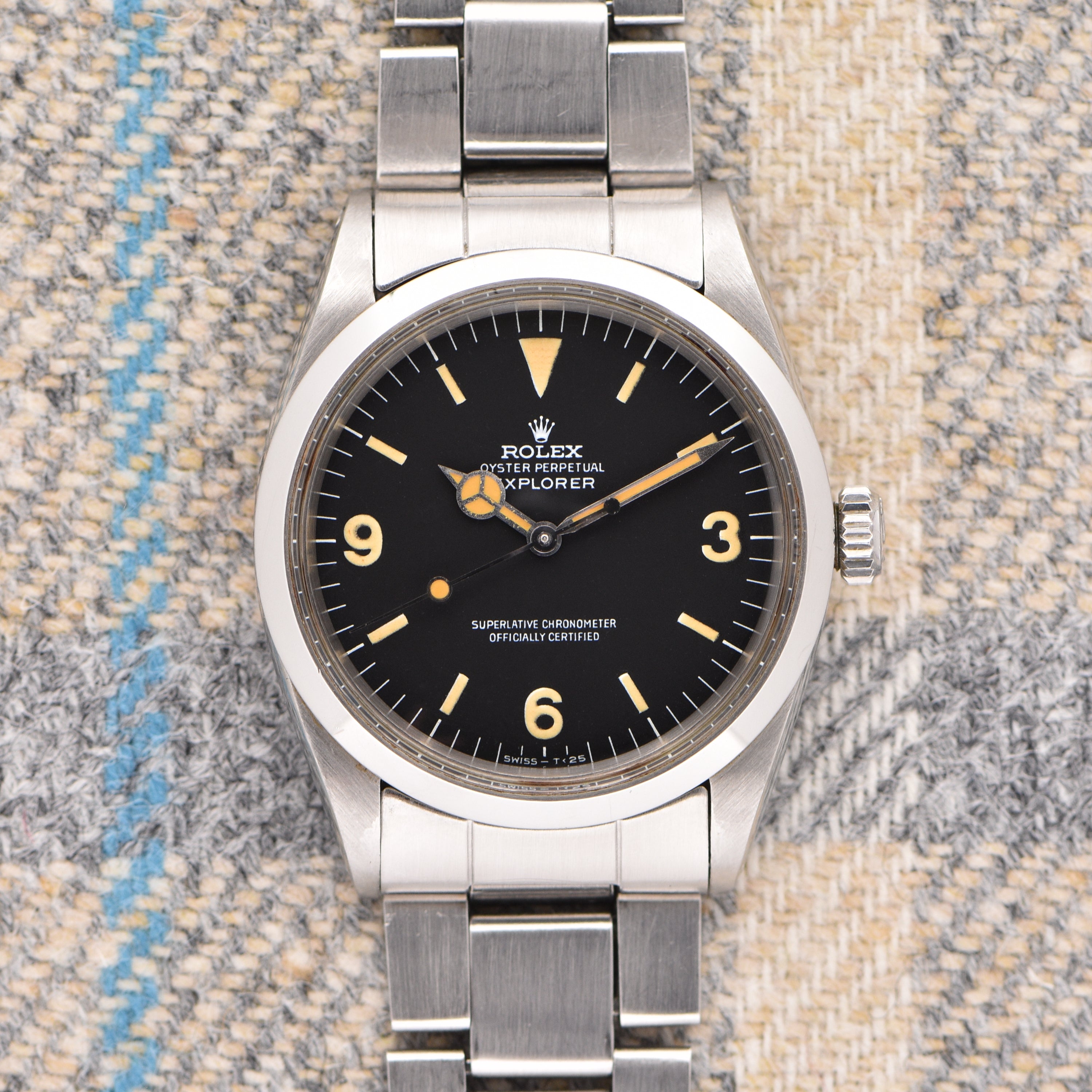
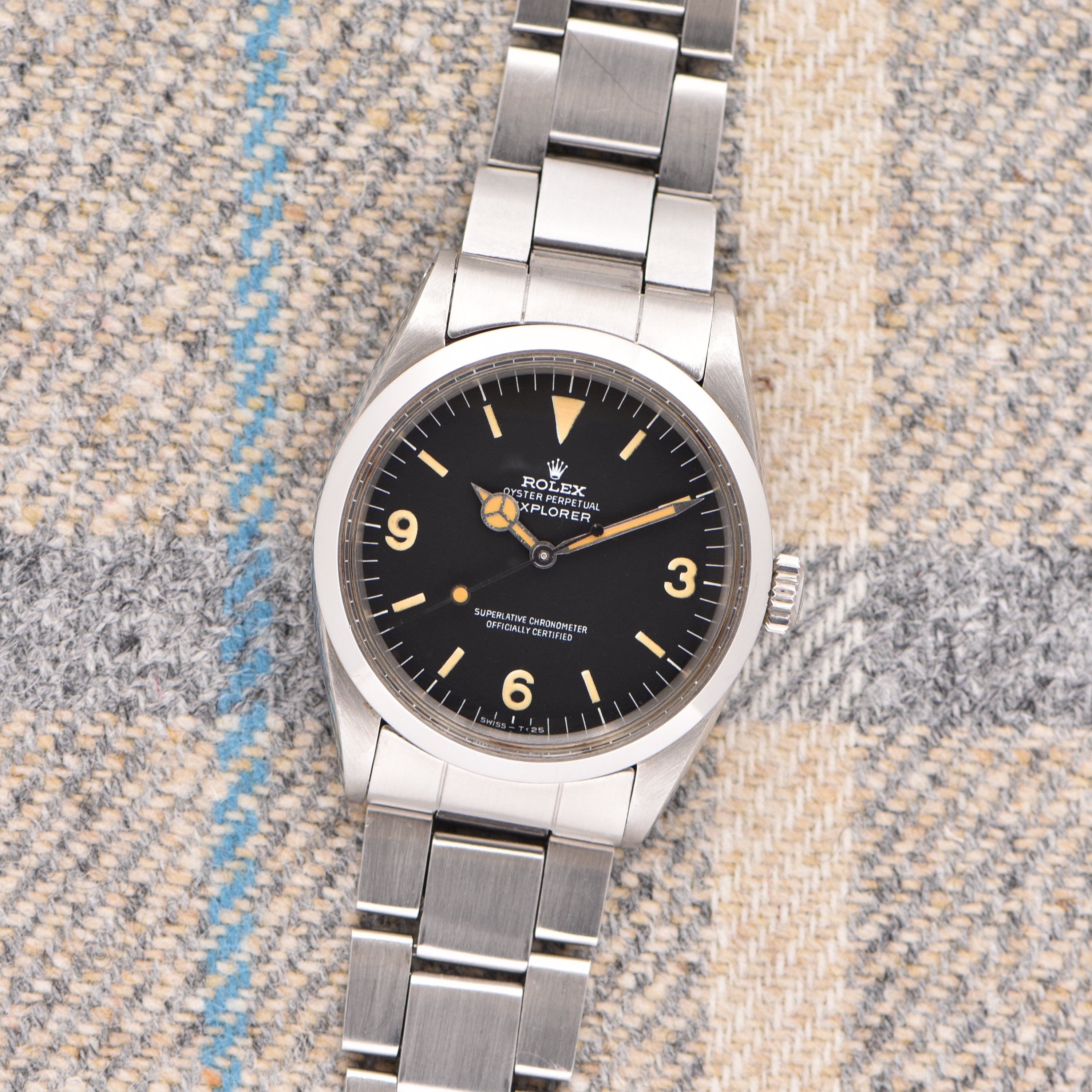
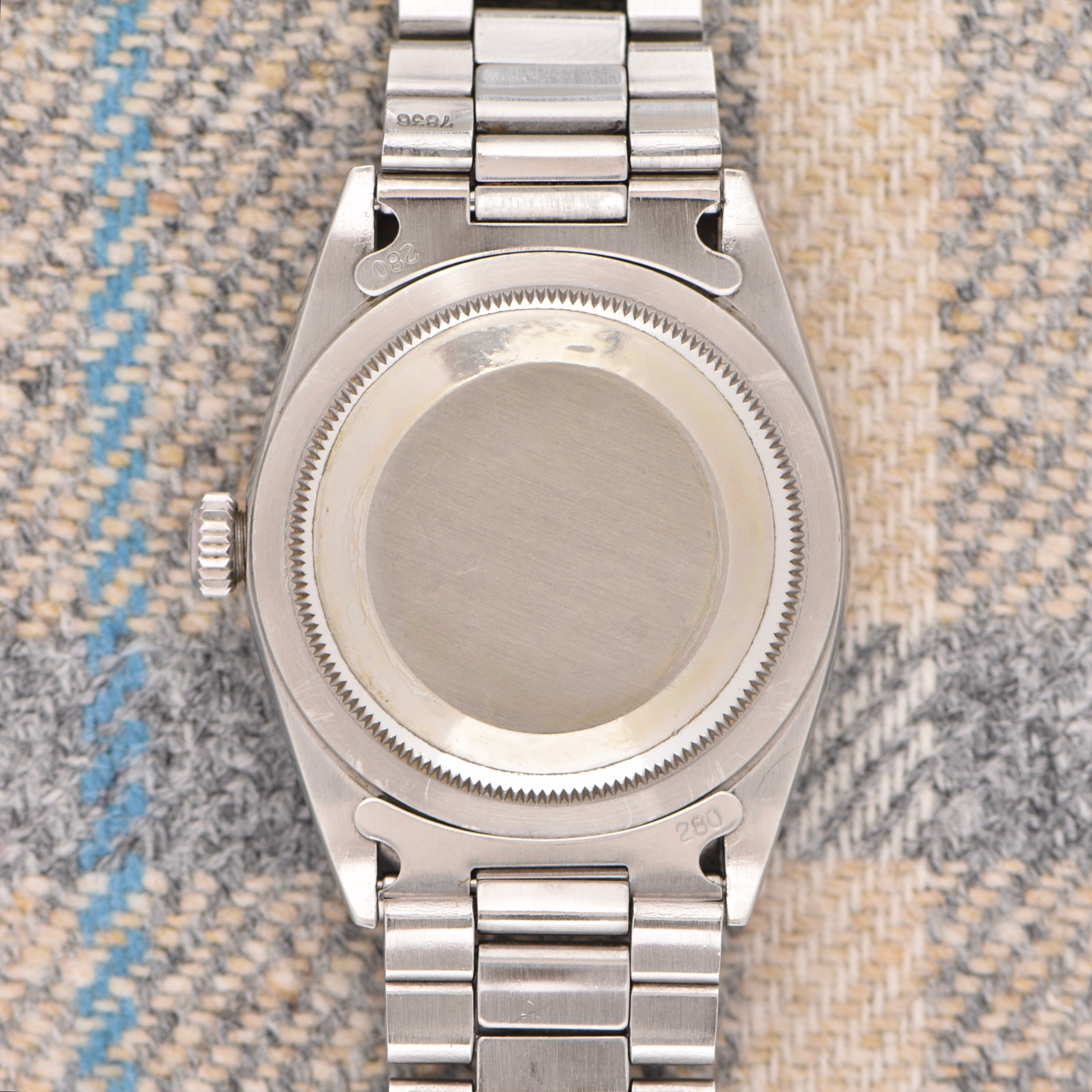
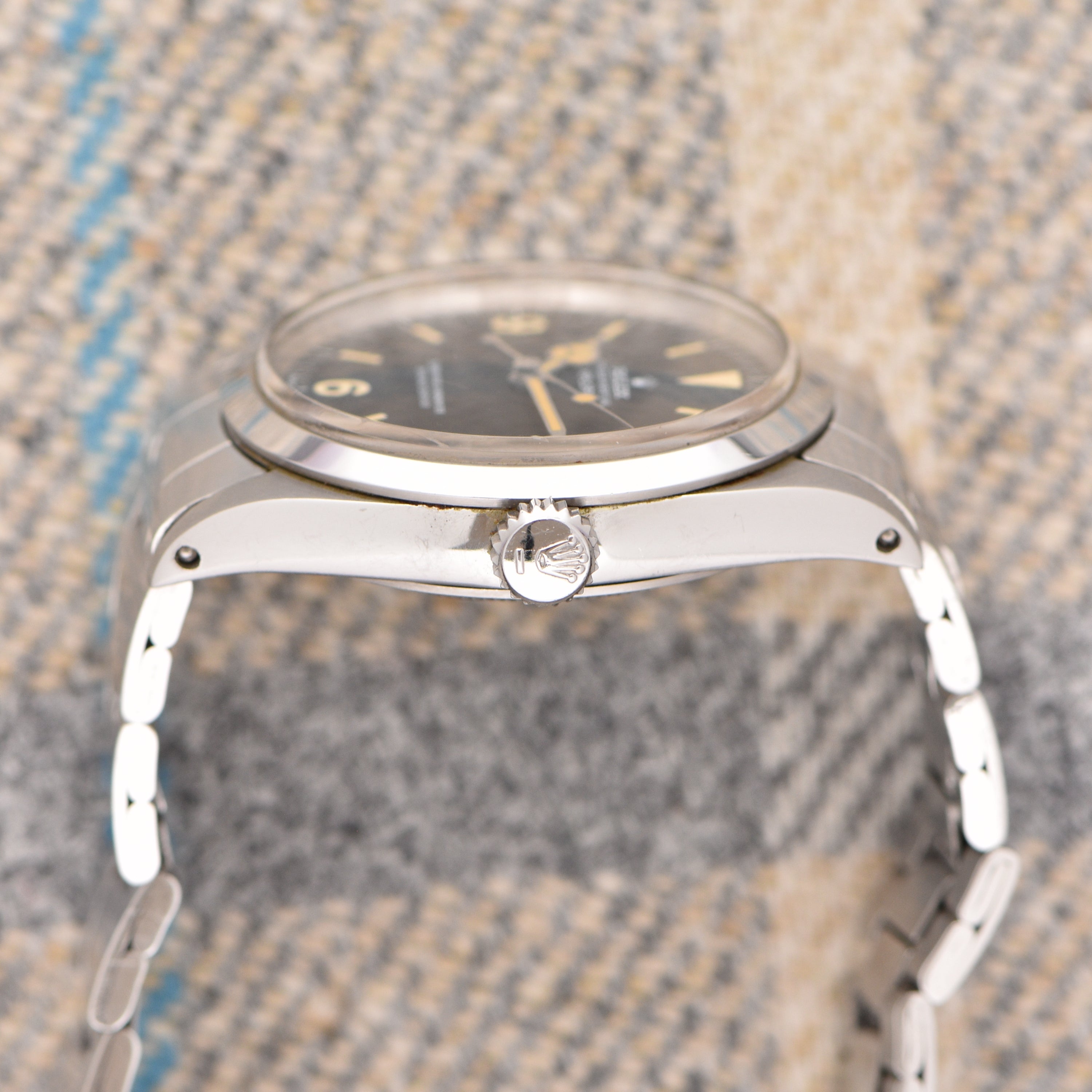
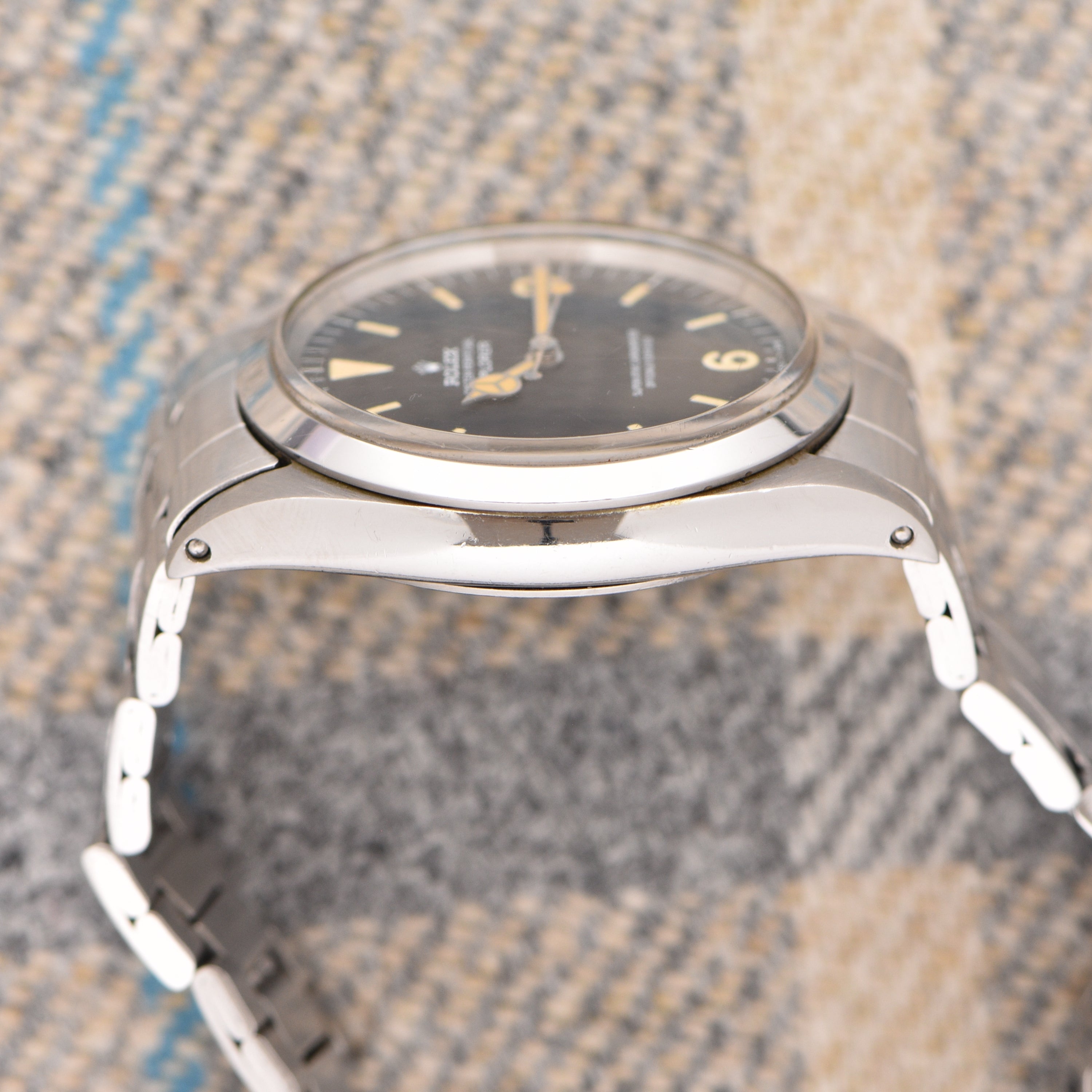
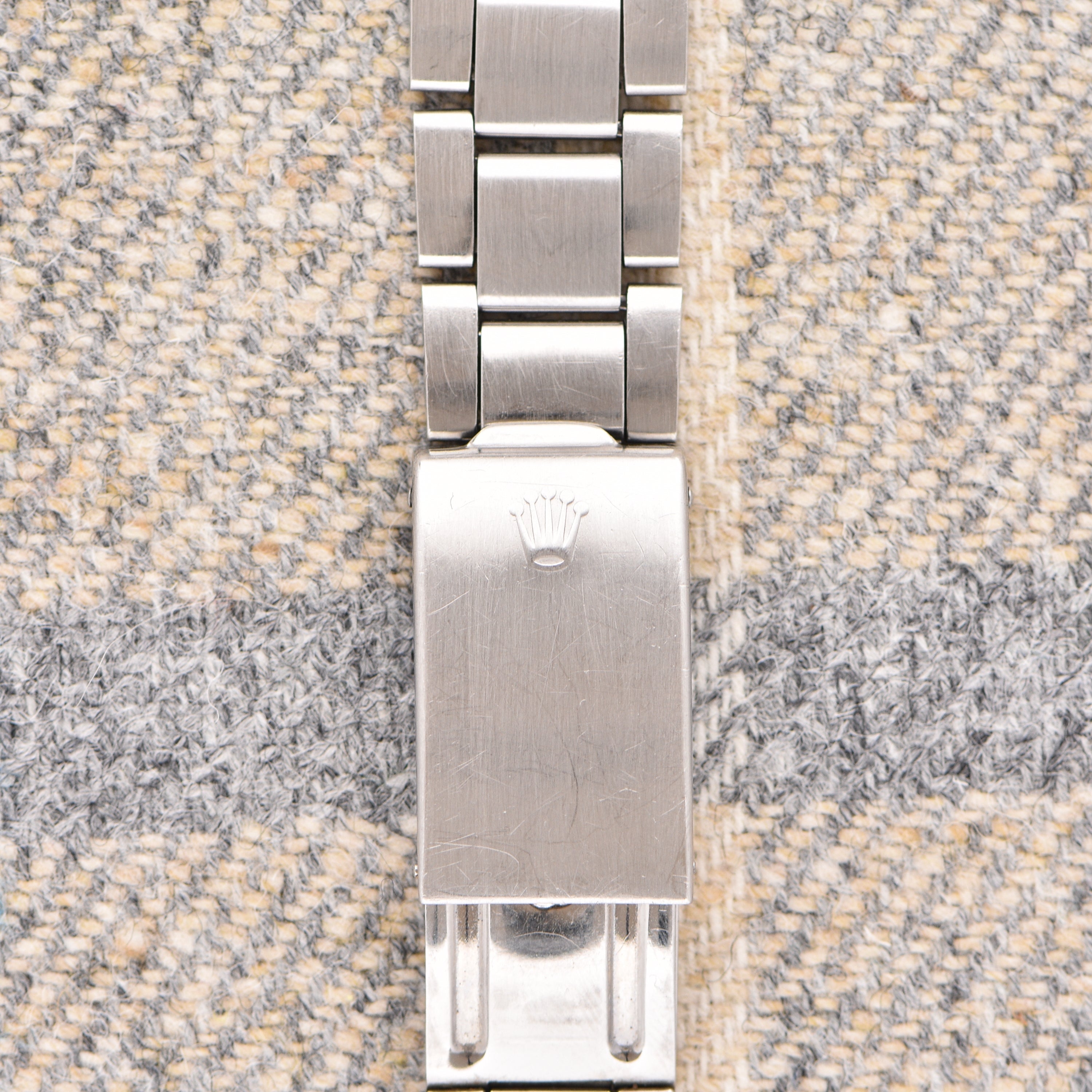
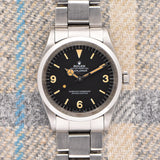
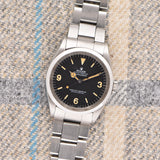
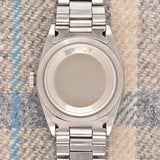
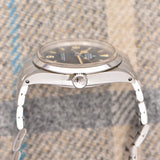
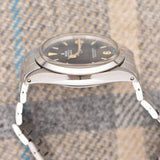
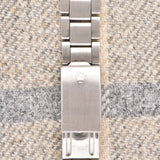
1967 Rolex Explorer Mk. 1 Frog Foot (Ref. 1016)
- Specifications
- Worth A Read
Reference: 1016
Model: Explorer 1
Movement: Automatic
Year: 1967
Contents: Watch Only
Case: The case is 36mm has very even lugs and is in great shape.
Dial: The dial is the show-stopper here. A phenomenal mark 1 'Frog Foot' dial. The nickname comes from the unique Rolex logo that resembles a frog foot. The matte dial was introduced in 1967 making this one of the earliest matte 1016s. With it being an early example, that confirms the darker hands to be original from this year of production. The color of the lume makes this one of the most exceptional examples we've seen.
Strap & Buckle: The bracelet is period correct for a Mark 1 1016.
The Explorer, a legendary vintage Rolex watch, was introduced in 1953. Bubbleback era of Explorers and was replaced by the Explorer 1016 a few years later, featuring an improved movement from the 15XX generation.
The dial used for the Explorer 1016 was Radium, followed by Tritium for luminescence. The dials were inscribed with the text "SWISS" on the bottom, while those decorated with Tritium boasted the distinction "T-SWISS-T" or "SWISS T<25." The watch also featured two different types of hands: flat or curved.
The Explorer 1016 was outfitted with numerous dial variations, including glossy black dials with gilt text, matte dials with white printed font, and the 3-link Oyster bracelet. The watch was also available on the Jubilee bracelet, with rivet-link Oyster bracelets first, folded-link, and solid link Oyster bracelets later.
The Explorer 1016's movement changed from caliber 1560 to caliber 1570 in the mid-1970s, featuring the hacking seconds feature. Both movements are similar in design and chronometer-rated, but the caliber 1570 beats at a rate of 19,800 bph and offers a longer power reserve of up to 48 hours, while the predecessor has a lower frequency of 18,000 bph.
1967 Rolex Explorer Mk. 1 Frog Foot (Ref. 1016)
Authenticity Guaranteed
All our watches are carefully inspected to insure and guarantee the authenticity.
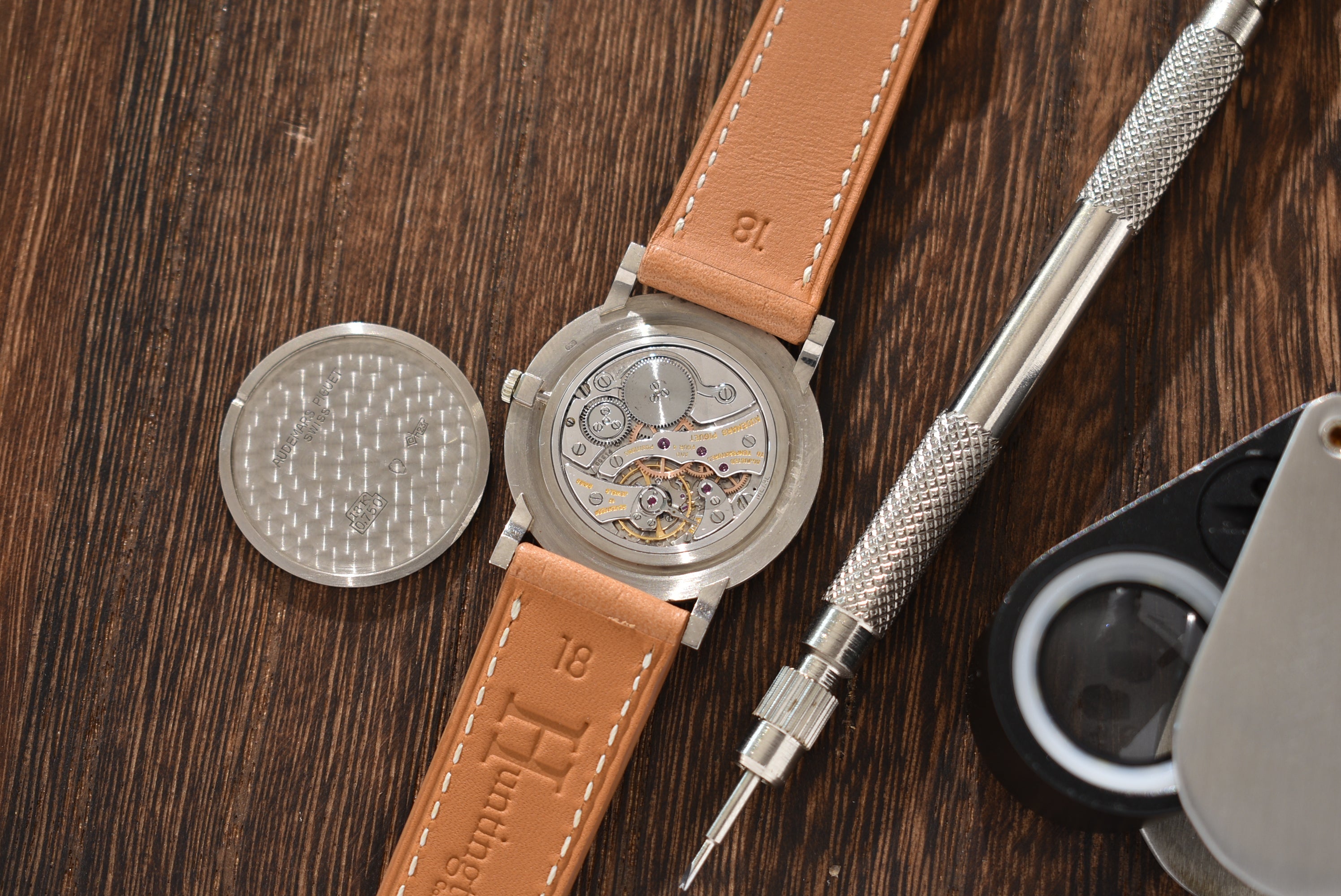
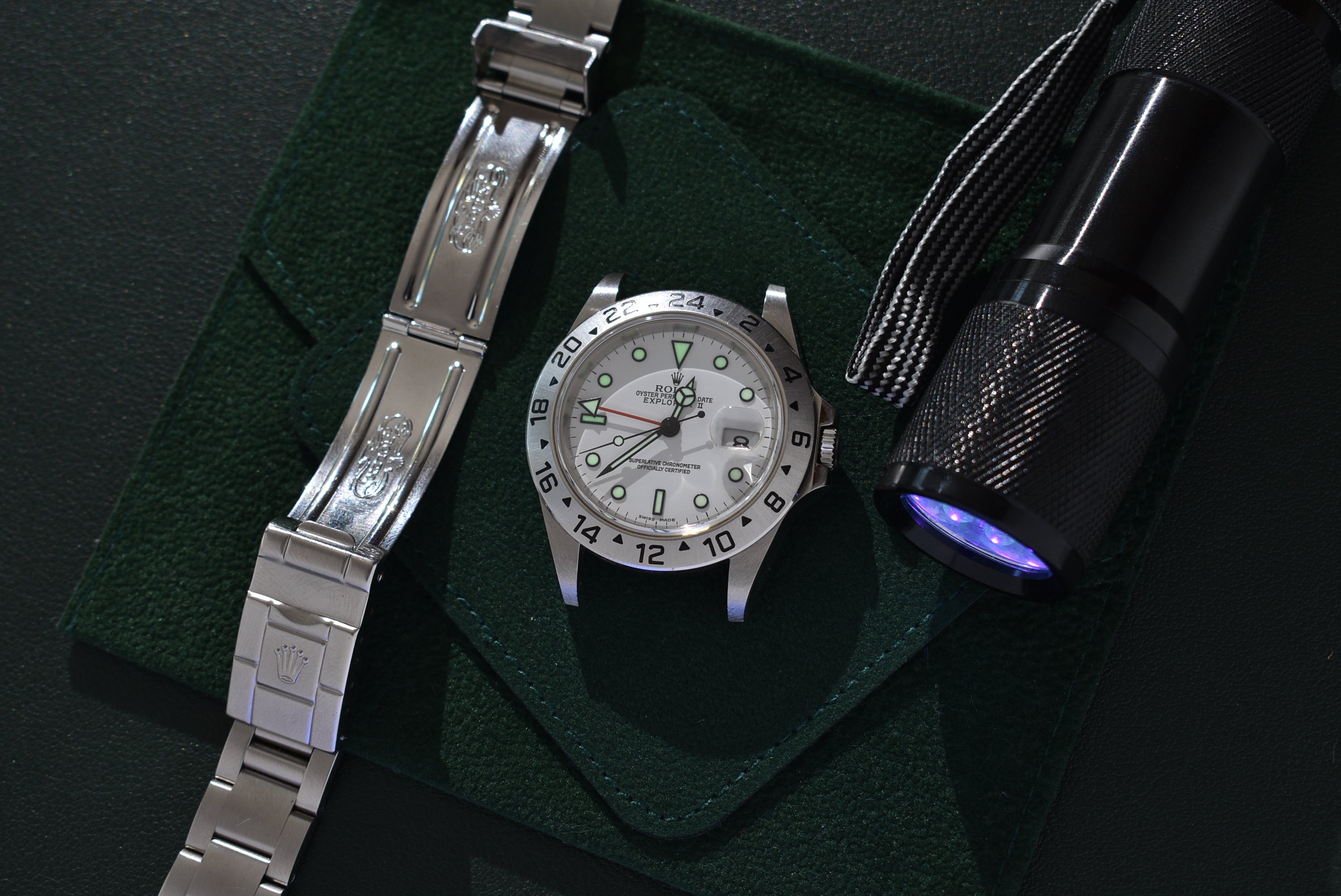
The Details
All our watches are scrutinized during inspection to make sure our descriptions are as accurate as possible.
- Related products
- Recently viewed
Cart
No more products available for purchase
Your Cart is Empty
Pair with
- Specifications
- Worth A Read
Reference: 1016
Model: Explorer 1
Movement: Automatic
Year: 1967
Contents: Watch Only
Case: The case is 36mm has very even lugs and is in great shape.
Dial: The dial is the show-stopper here. A phenomenal mark 1 'Frog Foot' dial. The nickname comes from the unique Rolex logo that resembles a frog foot. The matte dial was introduced in 1967 making this one of the earliest matte 1016s. With it being an early example, that confirms the darker hands to be original from this year of production. The color of the lume makes this one of the most exceptional examples we've seen.
Strap & Buckle: The bracelet is period correct for a Mark 1 1016.
The Explorer, a legendary vintage Rolex watch, was introduced in 1953. Bubbleback era of Explorers and was replaced by the Explorer 1016 a few years later, featuring an improved movement from the 15XX generation.
The dial used for the Explorer 1016 was Radium, followed by Tritium for luminescence. The dials were inscribed with the text "SWISS" on the bottom, while those decorated with Tritium boasted the distinction "T-SWISS-T" or "SWISS T<25." The watch also featured two different types of hands: flat or curved.
The Explorer 1016 was outfitted with numerous dial variations, including glossy black dials with gilt text, matte dials with white printed font, and the 3-link Oyster bracelet. The watch was also available on the Jubilee bracelet, with rivet-link Oyster bracelets first, folded-link, and solid link Oyster bracelets later.
The Explorer 1016's movement changed from caliber 1560 to caliber 1570 in the mid-1970s, featuring the hacking seconds feature. Both movements are similar in design and chronometer-rated, but the caliber 1570 beats at a rate of 19,800 bph and offers a longer power reserve of up to 48 hours, while the predecessor has a lower frequency of 18,000 bph.
